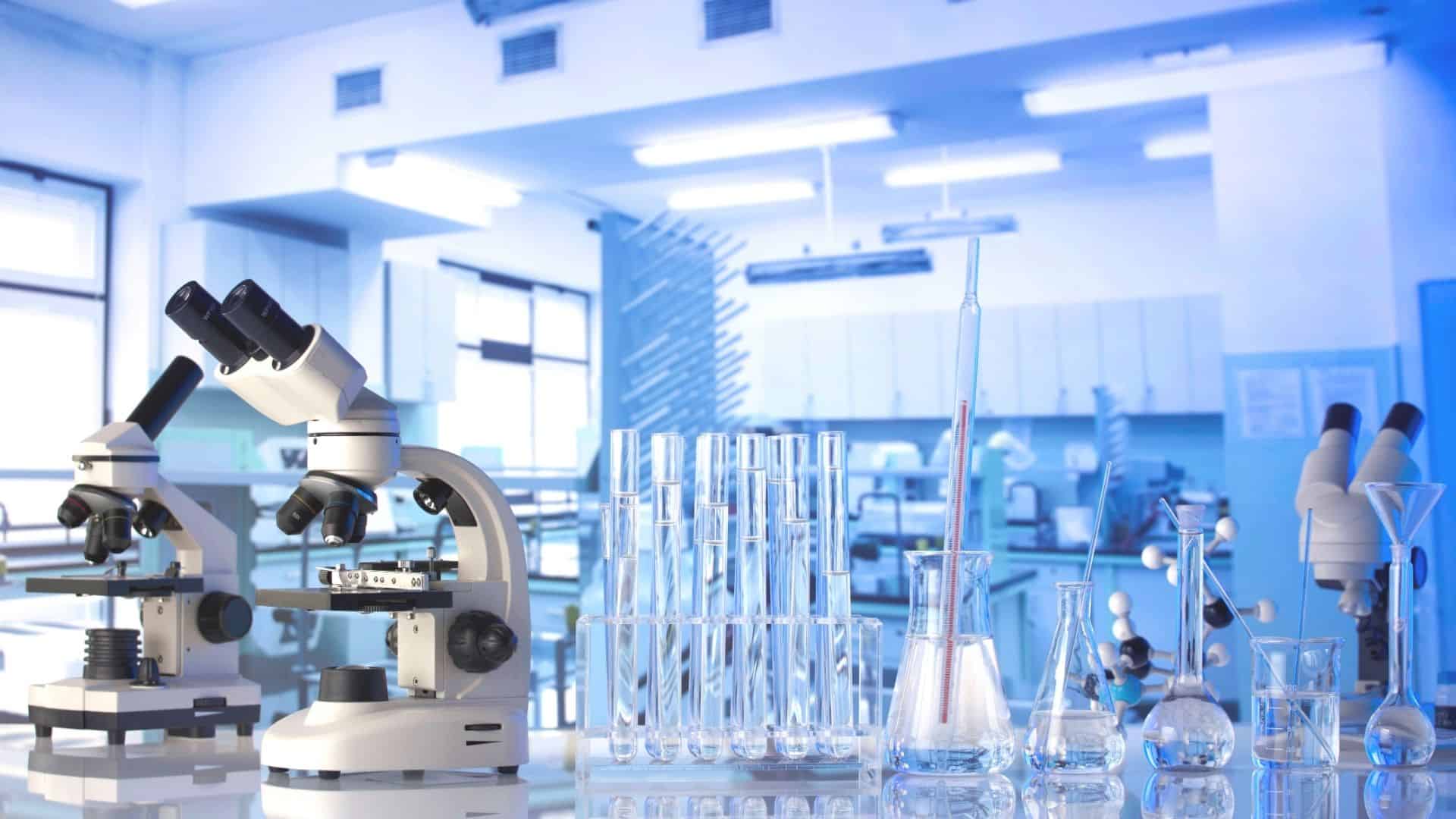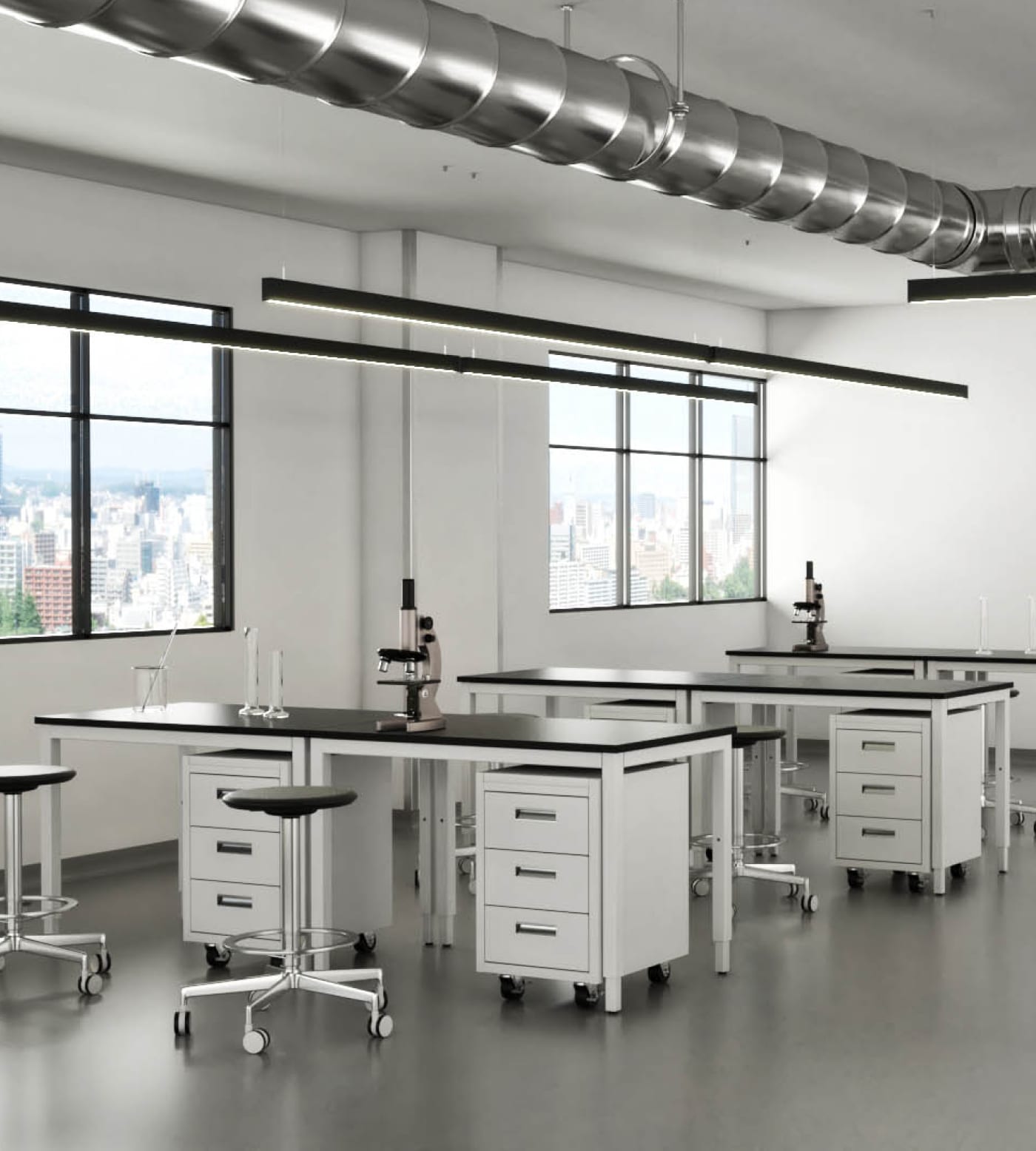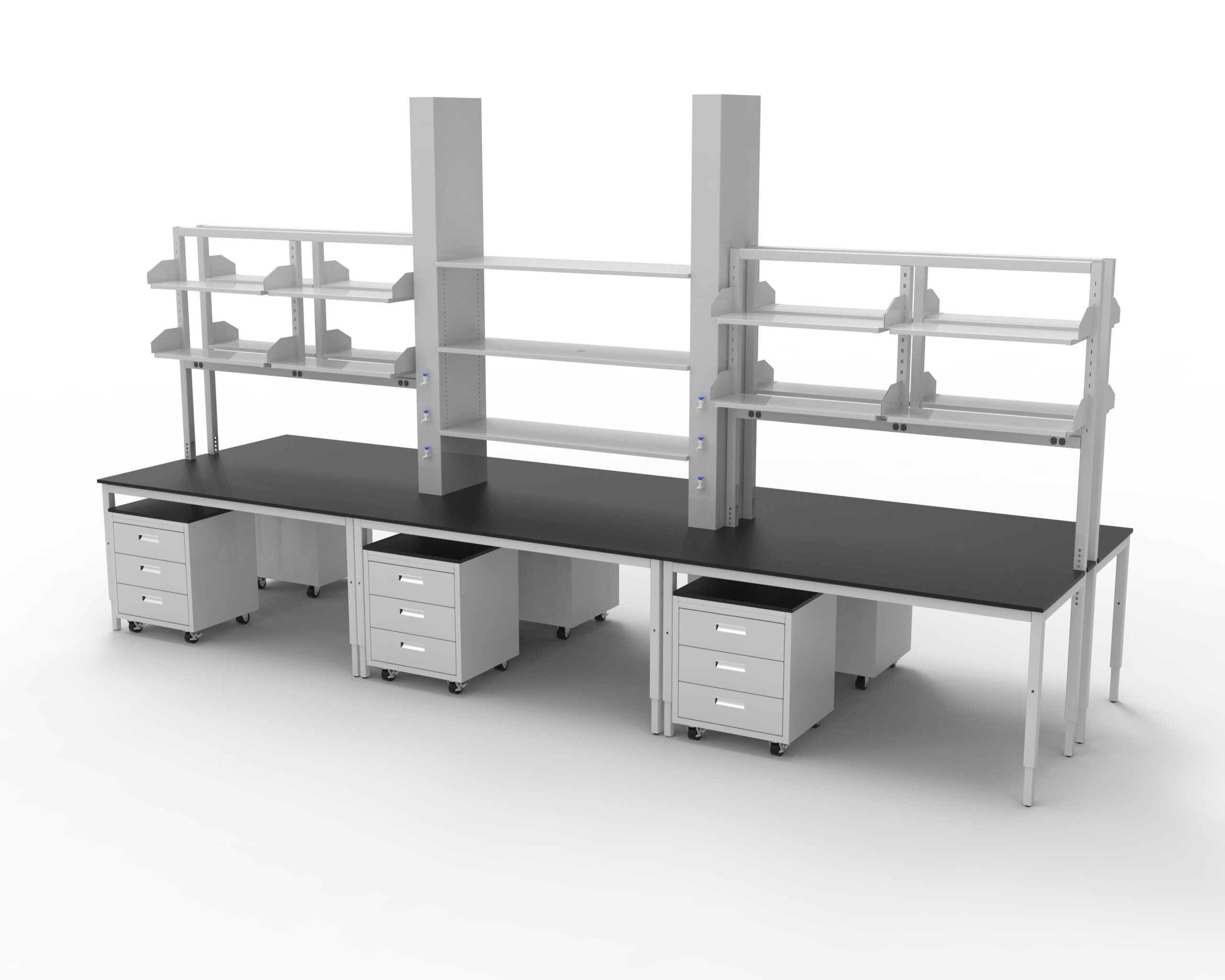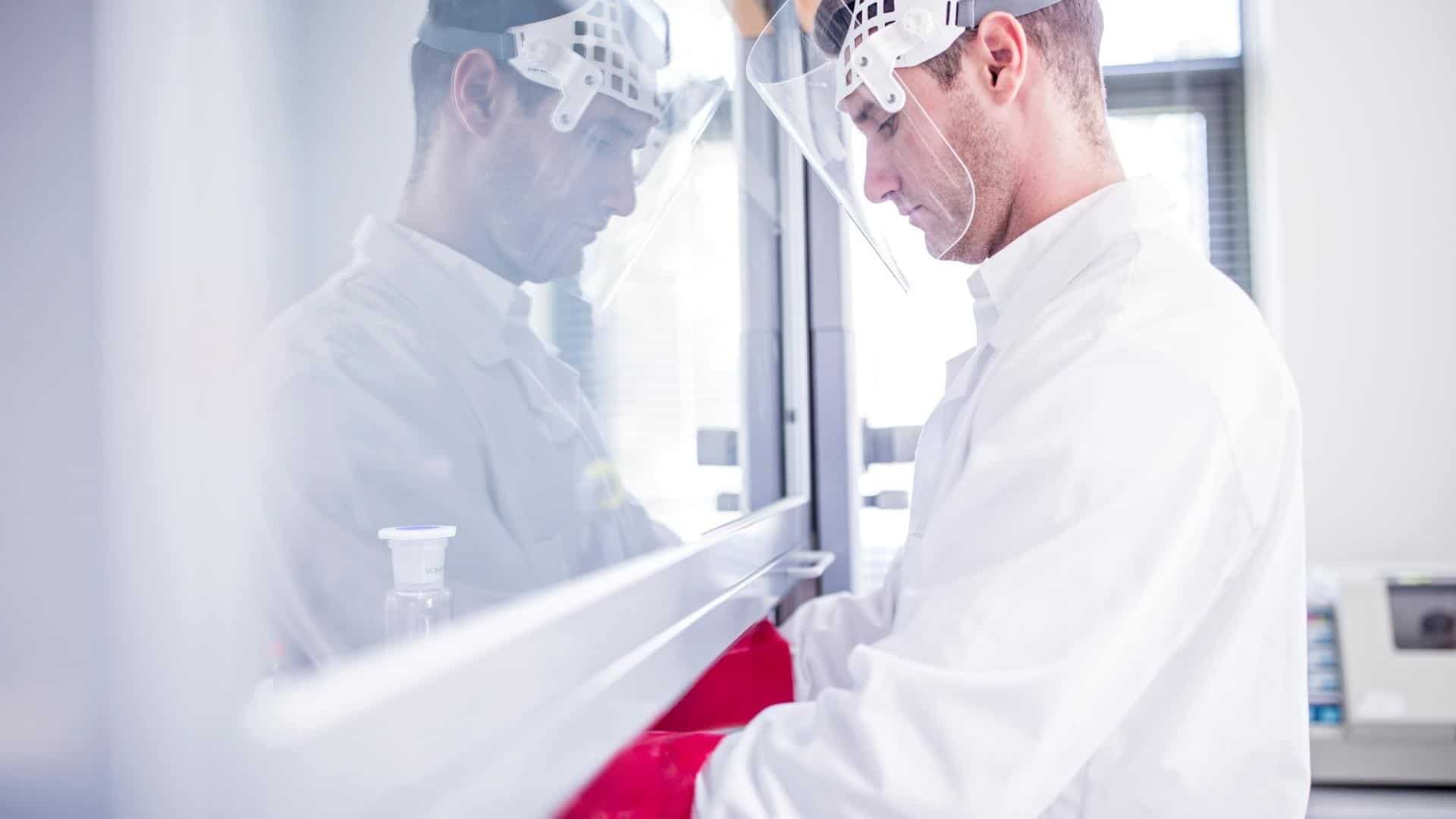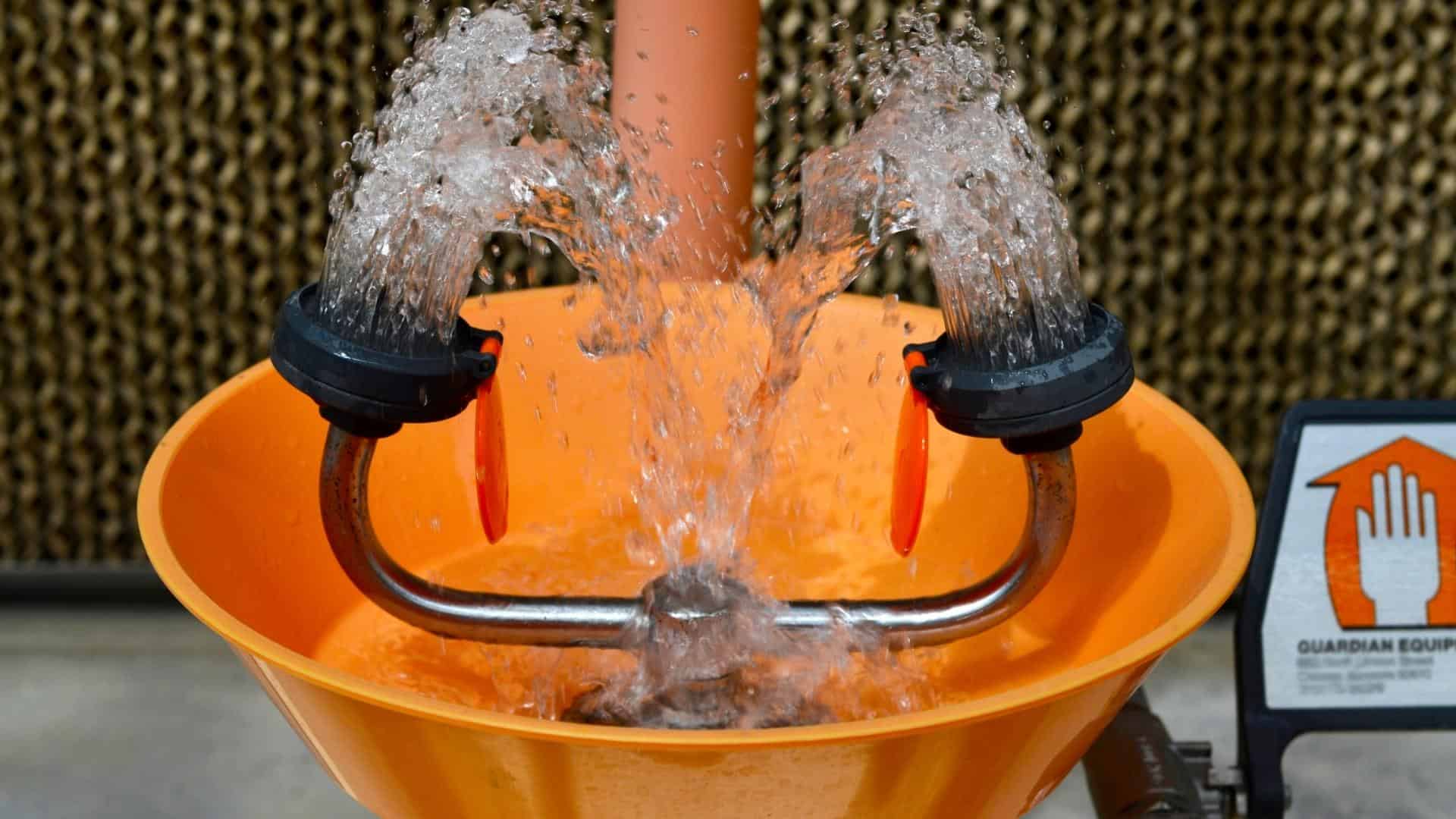Lab Planning And Design
Whether you’re setting up a high school chemistry classroom or building a medical research facility, it’s crucial to plan and design your laboratory layout with careful consideration. Not only do science labs have to meet certain safety and accessibility standards, but they also should be designed to meet the specific needs of the type of lab in question.
Characteristics of a Good Science Laboratory
The best laboratory design will keep people safe while also maximizing efficiency and anticipating a wide variety of scientific procedures and processes. Even if you’re designing a lab for a singular purpose, such as cannabis production, you’ll want to consider equipment features that could take your business to the next level.
At iQ Labs, we offer state-of-the-art laboratory fume hoods, casework, and furniture accessories. No matter what type of lab you’re designing, we’re here to help.
4 Factors to Consider When Designing a Laboratory
1. Space for Work and Equipment
The first thing you want to consider when designing a laboratory is space.
Are you building a new facility from the ground up? Are you renovating an existing space? Do you have lots of room to work with, or do you need to get creative with your space’s limitations?
When designing a lab, it’s important to account for your workers as well as your equipment. Make sure people have enough room to work safely. Create a laboratory floor plan with clear traffic flows toward emergency exits.
If you have mobile equipment, make sure your paths are large enough to accommodate it. Leave space in other areas of your lab so your mobile equipment has multiple places to reside without blocking walkways or doorways.
Remember to account for storage needs as well as workstations. When equipment is not in use, where will you safely store it? Don’t take shortcuts by storing equipment in places where it shouldn’t be, such as inside a floor mounted fume hood.
2. Proper Ventilation Systems
Proper ventilation is important in any science lab, but it’s particularly important if your work will produce harmful or toxic fumes. A fume hood can protect your team from breathing in dangerous gases.
Ducted fume hoods attach to standard HVAC systems and exhaust harmful fumes outside of the building. This ensures that no dangerous fumes escape into the laboratory.
Ductless fume hoods, also known as portable fume hoods, use specific filters to remove toxic fumes from the air. The filtered air is then released back into the lab.
Make sure to incorporate fume hoods into your lab design if you plan on doing work that produces harmful fumes. You’ll want to decide which specific fume hoods are necessary for your work. If you anticipate using your fume hoods for multiple purposes, consider choosing a ducted fume hood so you don’t have to worry about using the right filters for a ductless model.
3. Proper Plumbing, Gas, and Electrical Fixtures
Every lab needs standard lab benches, also known as workstations or utility tables. These basic models can be easily customized with many useful features, including plumbing fixtures, gas lines, electrical outlets, and burners.
When designing your lab, you’ll want to determine where the electrical outlets, gas lines, and plumbing fixtures will be, and include laboratory casework to make use of those features. Our team at iQ Labs has worked with many companies to create custom workstations that incorporate these fixtures.
4. Safety and Accessibility
Safety and accessibility features can and should be intentionally incorporated into your laboratory design, not added on later as an afterthought.
Look for laboratory casework that meets certain industry standards. This means finding companies with BIFMA, SEFA, and/or UL certifications. In particular, SEFA (Scientific Equipment and Furniture Association) tests the safety, durability, and structural integrity of laboratory casework. For fume hoods, make sure the product you’re buying meets the ASHRAE 110 fume hood testing standards.
Accessibility is an important part of any science lab. Walkways should be wide enough for wheelchairs, and fume hoods should be safe to use for people of all heights. Include accessible signage and safety messaging. Make sure that any alarm systems are not just sight-based or sound-based, but both.
At iQ Labs, we offer safety features and accessibility customizations for our fume hoods, laboratory casework, and lab accessories. We can help you design an ADA-compliant science lab.
How to Design a School Science Lab
Educational science labs require different considerations in the planning and design process than other types of labs. Common considerations for school science labs include:
- More space: Many schools need to prepare for thirty or forty students to be in a lab at the same time. You’ll also need additional room for students to view experiments conducted by a teacher or watch projections on a screen.
- Special equipment: If a teacher wants to demonstrate a scientific process to students, they may need a demonstration fume hood.
- Dedicated work surfaces: In school science labs, every student needs a dedicated work area. Often, two or more students can share a workstation.
- Additional storage: You may need to consider storage for supplies students bring into the lab. For example, you may want students to hang up their backpacks in a dedicated area so they can keep their workstations clear. Additionally, you may need extra storage for a large inventory of personal protective gear (PPE) that can accommodate multiple classes.
Design Ideas for Different Labs
The type of lab you’re planning will influence its layout and design. Different types of labs require different design features. However, all labs need to prioritize space, safety, and accessibility.
Common design considerations for various types of labs include:
- Biology labs: Clear casework for displaying specimens
- Chemistry labs: Multiple fume hoods for different chemical processes; peg boards for beakers
- Pathology labs: Biosafety cabinets to prevent the spread of infectious diseases
- Cannabis production labs: Portable fume hoods for research and testing
- Medical research labs: Radioisotope fume hoods and distillation fume hoods
- Manufacturing labs: Acid digestion fume hoods and perchloric acid fume hoods
Why Work with iQ Labs?
iQ Labs provides everything your science lab needs, from fume hoods to laboratory casework and accessories. When you’re designing a new laboratory, you’ll want to work with a manufacturer that provides top-of-the-line equipment as well as expert design suggestions and insights. We can help you determine the best way to make use of your available space while prioritizing safety, space, and accessibility. Contact us today for more information.
